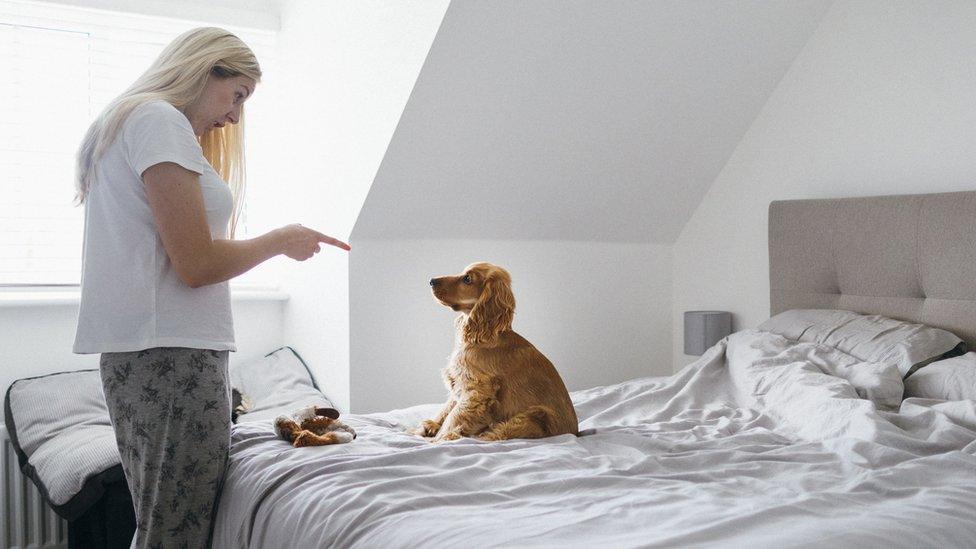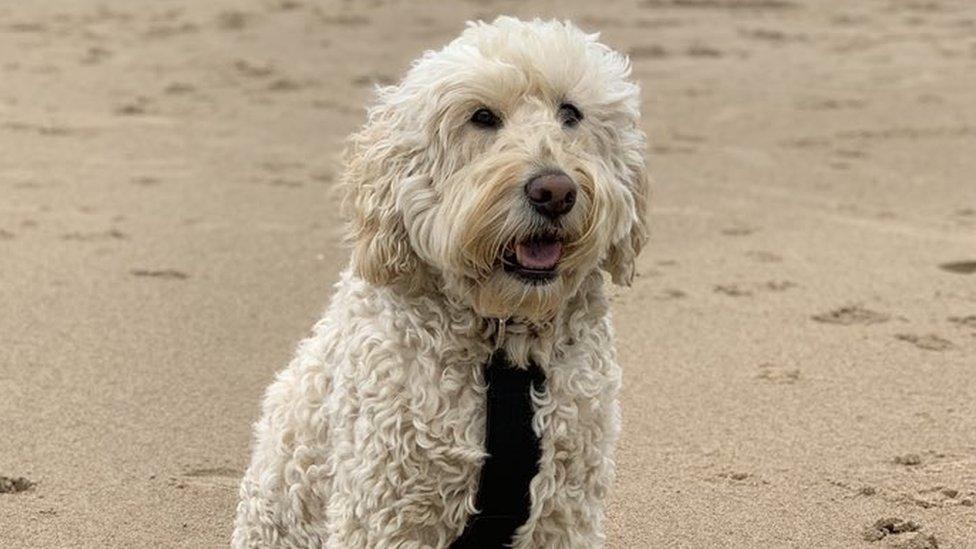Dogs go through 'teenage' phase when they hit puberty
- Published

You want to stay up all night gaming, then sleep in until lunch. You don't want to listen to your parents or do what you're told.
Adults keep nagging you but no-one understands you. It turns out your dog might.
It could be going through the same thing.
A study, external from a team of UK universities suggests dogs act in a similar way to humans when they hit puberty.
None were caught smoking or swearing at their owners but they found they were more likely to ignore commands and were harder to train.
So far so teenage.

There is no evidence to suggest teenage dogs also like taking selfies
The team, from Nottingham, Newcastle and Edinburgh universities, looked at 69 dogs before adolescence (five months) and then again during it (eight months).
Dogs in adolescence took longer to respond to the "sit" command even if they knew how to do it.
A questionnaire with 285 dog owners showed similar results. The animals going through puberty were harder to train.
Allow X content?
This article contains content provided by X. We ask for your permission before anything is loaded, as they may be using cookies and other technologies. You may want to read X’s cookie policy, external and privacy policy, external before accepting. To view this content choose ‘accept and continue’.
But they only acted this way for their owners. When it came to strangers they were much better behaved. The dog version of "taking it out on your mum," says Zoologist Dr Naomi Harvey who worked on the research and spoke to Newsbeat.
"What we found is evidence that dogs do show a period of reduced obedience towards their owners and this is specific to their owners not to other people," she explains.
"It is associated with all of the issues going on inside the dog during puberty. The hormonal fluctuations and the remodelling of the brain to become an adult brain cause a lot of issues."

When your mum tells you "your room is a pit"
The good news for teenage dogs and their parents / owners, is it doesn't last forever. The research found they became more obedient once they'd got past puberty.
"This is a very important time in a dog's life," says Dr Lucy Asher, the animal behaviour scientist who led the study.
"This is when dogs are often rehomed because they are no longer a cute little puppy and suddenly, their owners find they are more challenging and they can no longer control them or train them. But as with human teenage children, owners need to be aware that their dog is going through a phase and it will pass."
So what should you do if you find yourself with a moody teenage dog?
Dr Asher has this guidance: "We would suggest people remain consistent and use rewards rather than punishing their dog. It's important to remember it's not the dog deliberately behaving badly it's just their biology. In general we'd ask owners to be kind to their dog during this time and understand it's just a passing phase."
Helpful advice for owners of dogs and humans alike.


- Published27 April 2020

- Published25 September 2019
